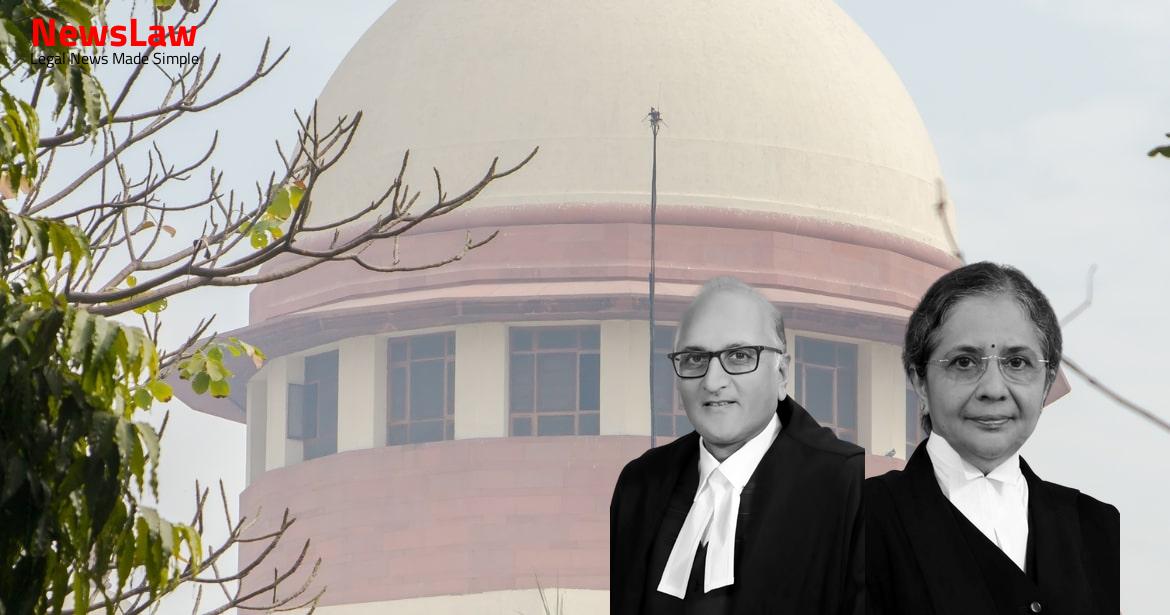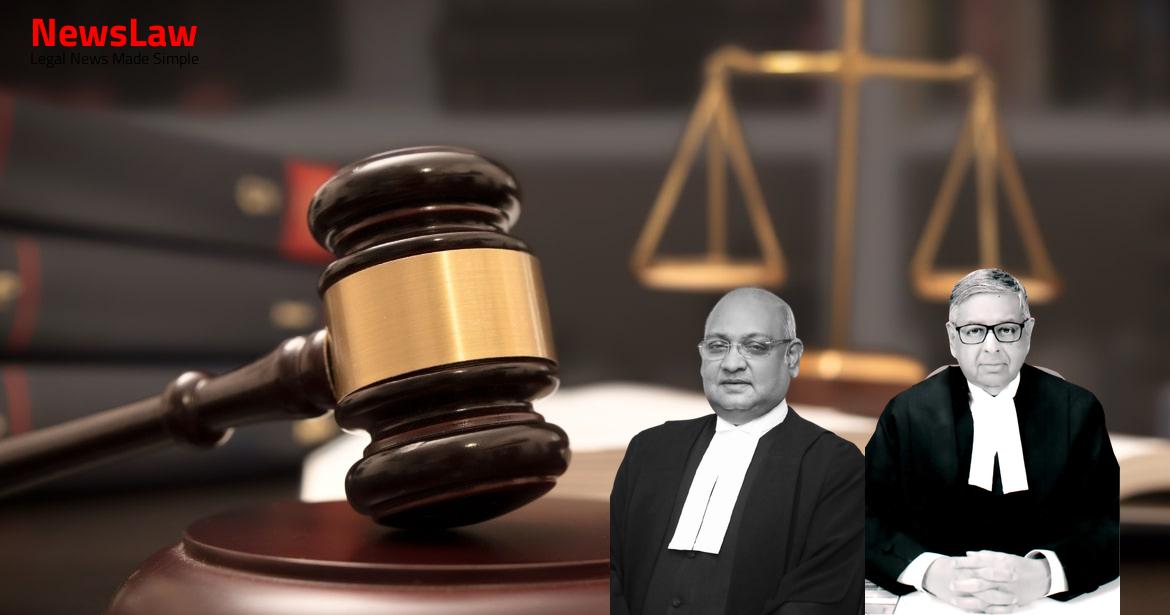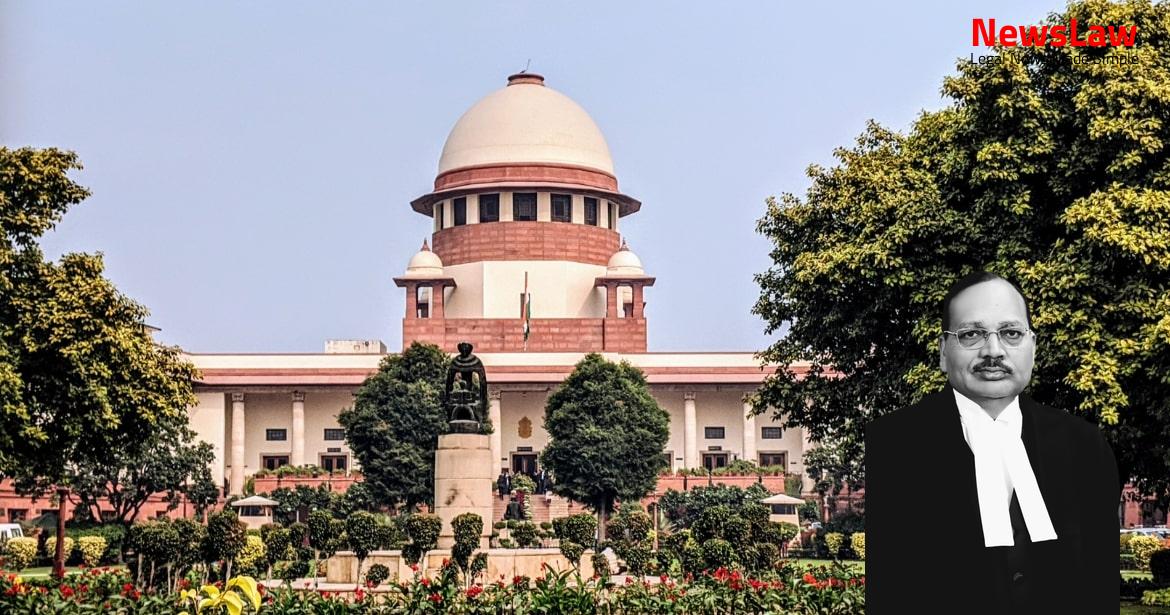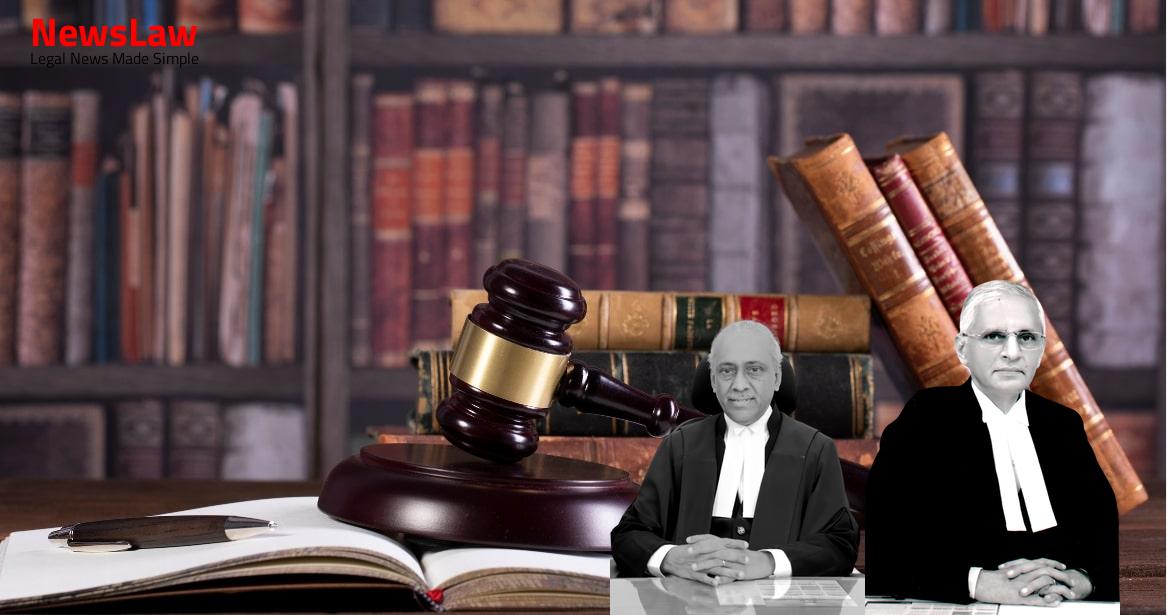Explore a detailed legal analysis of a complex criminal case where the court navigates through issues of circumstantial evidence, fair trial considerations, and the burden of proof. This summary sheds light on the importance of due process and meticulous examination of facts in ensuring justice in the legal realm.
Facts
- Ramkishan, son of Shyam Yadav, testified that Firozbhai took him and Pooja to a fruit shop where Pooja was raped and killed.
- Various witnesses supported Ramkumari’s version, including Madhu Yadav, Himmabai, and Preeti Yadav.
- Medical reports indicated Pooja’s injuries, including a ruptured hymen due to sexual intercourse and brain swelling.
- Dr. Goyal stated Pooja was brought to the hospital unconscious with brain swelling, critical condition, and later died.
- Accused Firoz was arrested near a mosque in Bhagalpur and medically examined to be capable of sexual intercourse.
- Ramkishan told his mother that Bhaijaan took Pooja with him, prompting a search and report to the police.
- Investigation by various officials including the Tehsildar, DSP, and Police Station In-charge led to the identification and arrest of the accused.
- Accused Rakesh Choudhary was also involved but acquitted later.
- Medical reports and DNA tests suggested sexual assault on the victim.
- Prosecution presented multiple witnesses and evidence to establish guilt of the accused in the crimes against Pooja.
- Details of injuries and medical treatments provided during the victim’s care until her unfortunate death were recorded.
- Post-mortem revealed the final cause of death as bronchopneumonia and cerebral hypoxia due to smothering.
- The High Court acquitted accused Rakesh Choudhary in Criminal Appeal No 3132 of 2013.
- Accused Mohd. Firoz’s death sentence was confirmed in Criminal Appeal No 2920 of 2013.
- Sessions Court referred the death sentence confirmation for Firoz in Criminal Reference No 09 of 2013.
- Rakesh Choudhary was sentenced to rigorous imprisonment and fines for multiple offences under IPC and POCSO Act.
- Both accused were convicted for various charges, with Firoz receiving death sentence and other imprisonments and fines.
Also Read: Balancing Power and Transparency: Electoral Bonds Struck Down, Disclosure Mandated
Arguments
- Learned Senior Counsel Mr. B.H. Marlapalle, representing the accused-appellant, did not dispute the accused’s visit to the victim’s house but pointed out discrepancies in prosecution witnesses’ evidence.
- He emphasized the need for caution when assessing evidence of interested witnesses, citing the Masalti vs State of U.P. case and the Ajay Singh vs State of Maharashtra case.
- Highlighted the importance of conducting a fair and impartial criminal trial without external influences.
- Argued that as the prosecution’s case relied on circumstantial evidence, the entire chain of events needed to be proven conclusively, which he claimed was lacking.
- Stressed the necessity for the accused to be informed of specific charges and evidence against them for a fair trial, citing the K. Anbazhagan vs The Superintendent of Police & Ors. and Zahira Habibullah Sheikh & Anr. vs. State of Gujarat & Ors. cases.
- Challenged the inference drawn from the accused admitting his visit to the victim’s place and the ‘last seen theory’ linking him to the crime of rape and murder.
- Noted media pressure on the investigating agency at the time of the incident, leading to a hasty charge sheet submission without a thorough investigation.
- Critiqued the trial court for failing to clearly inform the accused of incriminating evidence and urged faithful observation of Section 313 of the Cr.P.C. for fair proceedings.
- The prosecution’s case relies on circumstantial evidence.
- Appellant-accused admitted to certain facts like visiting the victim’s house and being arrested.
- No eyewitness to the alleged incident.
- Minor contradictions in witness testimonies do not invalidate prosecution evidence.
- Accusation of lack of fair trial was raised at the end without substantiation.
Also Read: Recall of Resolution Plan Approval: Legal Analysis
Analysis
- The court examined the facts of the case to affirm the conviction of the appellant for the charged offenses but commuted the death sentence to life imprisonment under Section 302 IPC due to societal interest.
- The prosecution needed to prove the guilt of the accused with independent and cogent evidence, and while the accused statements under section 313 of Cr.P.C. are not enough for conviction, inculpatory statements can be used in support of the prosecution’s case.
- The accused’s actions and behavior, including absconding after the incident, were considered as incriminating circumstances by the prosecution.
- The court analyzed the ‘last seen together’ theory in relation to the accused’s explanations and behavior after being last seen with the victim.
- Proper legal assistance, fair trial considerations, and burden of proof on the prosecution were highlighted in the court’s analysis.
- The court emphasized on chain of circumstances and the importance of explanation by the accused in cases relying on circumstantial evidence.
- The doctrine of ‘last seen together’ was thoroughly discussed in line with Section 106 of the Evidence Act and how it applies to the case’s circumstances.
- Reference to past legal precedents for similar cases and the impact of sentencing based on mitigating factors were considered in determining the appropriate sentence for the appellant.
- The court addressed the balance between the rights of the accused, victim, and society in ensuring a fair trial and justice.
- Several reports, including probation officer reports and psychiatric evaluations, were considered in the sentencing decision for the appellant.
- The accused’s statement under Section 313 CrPC can be relied on either in whole or in part.
- If the exculpatory part of the accused’s statement is found to be false and the prosecution’s evidence is reliable, the inculpatory part can lend assurance to the prosecution’s evidence.
- In the case discussed, the appellant’s admission about visiting the informant’s house could aid the prosecution’s evidence.
- The theory of ‘last seen together’ was crucial in the prosecution’s case, supported by testimonies of key witnesses.
- The Court emphasized the principles of fair trial and the right to a speedy trial, applicable to both the accused and the victim.
- The judgment reiterated that the accused must be proven guilty, with evidence consistent only with their guilt and excluding any other plausible hypothesis.
- Section 106 allows the court to consider the accused’s failure to explain incriminating facts within their knowledge as an additional link in the chain of circumstances.
- Article 39A provides for free legal aid to the poor, ensuring justice for all.
- The importance of distinguishing between ‘may be proved’ and ‘must be proved’ was highlighted by the Court.
- Various legal precedents were cited to underline the stringent criteria for establishing guilt in criminal cases.
- Restorative justice principle gives the offender a chance to repair the damage caused and become a socially useful individual.
- Maximum punishment may not always be the best way to rehabilitate the offender.
- Balancing retributive and restorative justice, the appellant is sentenced to 20 years imprisonment instead of life imprisonment for the offence under section 376A, IPC.
Decision
- The appeal is allowed to a certain extent
- Conviction and sentence for other offences under IPC and POCSO Act are affirmed
- All punishments imposed shall run concurrently
Case Title: MOHD. FIROZ Vs. THE STATE OF MADHYA PRADESH (2022 INSC 429)
Case Number: Crl.A. No.-000612-000612 / 2019



